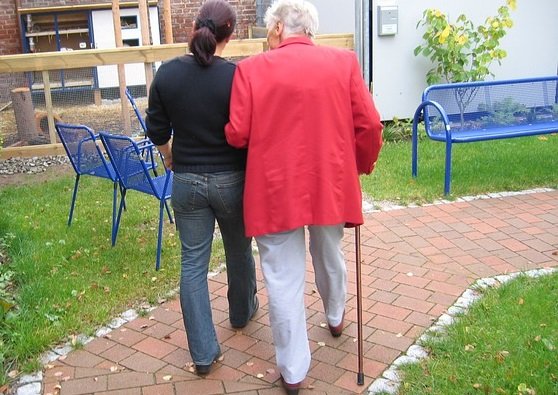6 Tips to Stay Organized When Caring for Elderly Parents
Many of us fall into the middle generation: We have parents, grandparents, kids, and grandkids. Sometimes, we’re caring for all of them, but 17% of adult children are caring for their aging parents. It can be hard enough keeping our own lives in order, but how do you handle it when others rely on you? More adult children find themselves managing the finances, medical affairs, and overall care of elderly parents. Keeping everything organized can be stressful. These tips will help you provide the best care for your elderly parents and take away the mental stress of managing it all.
1. TALK WITH YOUR PARENT AND ASSESS THEIR NEEDS.
They may be aging, but your parents are still individuals with their own wants and needs. While this step is sometimes not possible, if you can, get their input. Take the time to discuss the expectations and desires of your parents before they are in need. Once you’re involved with their care, have ongoing conversations with medical, legal, and assisted living professionals to determine how you can best meet those needs. If they’re willing, have them sign a Power of Attorney granting you the ability to handle their affairs should they become incapacitated. It’s easier to have it than to try to get it once they are ill.
2. KEEP A JOURNAL.
Journals are great for taking notes when you’re meeting with a doctor or caregiver, and they are useful for tracking symptoms and new developments. A journal is a space for anything of importance. Just be mindful to date and label your entries carefully so that the information is easy to find if you ever need it.
3. USE A BACKPACK OR BRIEFCASE FOR IMPORTANT DOCUMENTS.
You never know when you’ll have an unexpected meeting for your elderly parents or need a specific document. By keeping a backpack of essential documents, like medical records, proof of power of attorney, and finances, you’ll always have what you need on hand. Consider keeping this bag securely in your car so that you aren’t having to run home or to the office for paperwork.
4. HAVE DUPLICATES.
Not every document can be replaced immediately. If important paperwork has been lost or destroyed, it can slow the care your parents receive. Keep duplicates of all essential information in a filing cabinet or drawer at home, including a copy of their insurance card, a list of their prescriptions, and a copy of the power of attorney. This gives you time to replace what has been lost while still having access to the information your elderly parents need.
5. KEEP A BAG OF THEIR PERSONAL MUST-HAVES.
If your parent is in assisted living, keeping a bag of their personal items is essential. This bag should always have things like a sharpie for labeling clothes and personal items, as well as their favorite candies, mints, lip balm, or whatever they enjoy. When you go for a visit this bag is useful to carry whatever needs dropped off or picked up.
6. LEVERAGE YOUR MOBILE APPS.
We’re not sure how we managed without our cell phones; it’s hard to manage the affairs of elderly parents without them. A calendar that offers notifications and reminders, to-do lists, medication lists, photos of documents, and important contacts can all be stored on your phone, at your fingertips. With a few clicks you can view the appointments for the upcoming weeks and months to guarantee that you have everything in order.
Keeping track of the lives of others on top of coordinating your own can be overwhelming. Staying as organized as possible makes everything easier. Caring for elderly parents or grandparents can be a challenge but with the right tools you can minimize the stress.

